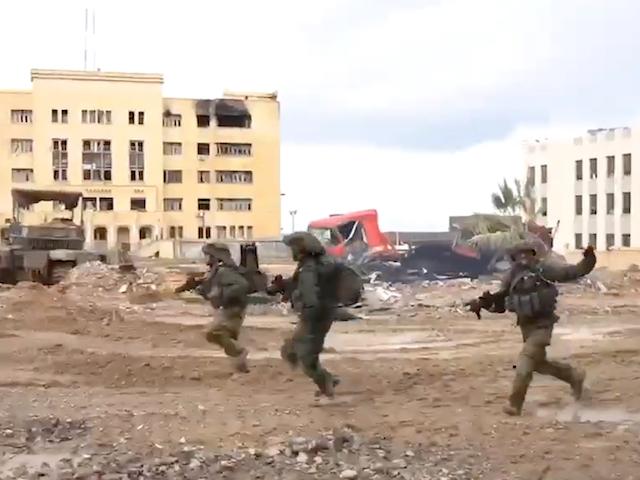In a significant development, Israel and Hamas are engaged in negotiations for the first time in several months, discussing the potential for a deal that would see the release of Israeli hostages in exchange for a temporary ceasefire in the Gaza Strip. This revelation, reported by Axios' Barak Ravid and corroborated by two Israeli officials and a source privy to the discussions, marks a crucial juncture in the efforts to alleviate the humanitarian crisis in Gaza, where the conflict has displaced thousands of Palestinians.
The dialogue, which has seen involvement from Qatar and Egypt as mediators since December of the previous year, had initially stalled, focusing more on setting a negotiation framework rather than delving into the specifics of an agreement. However, the talks have taken a positive turn with the proposal of a six-week ceasefire in Gaza, coupled with the release of 40 hostages—including women, female soldiers, men over the age of 50, and men with critical medical conditions—in exchange for the freedom of hundreds of Palestinian prisoners.
Activists calling for a ceasefire while Hamas keeps firing rockets and holding Israeli men, women and children hostage.pic.twitter.com/Zlvkq5XUrg
— Israel ישראל 🇮🇱 (@Israel) March 19, 2024
The momentum toward reaching an agreement gained traction last week when Hamas responded to a proposal by the U.S., Qatar, and Egypt concerning the framework for a hostage deal. Although differences remain, Hamas' response was seen as a step closer to the proposed framework, thus allowing for more detailed discussions to ensue.
A contentious aspect of the negotiations is Hamas' insistence on selecting the prisoners to be released, particularly those serving life sentences for attacks against Israelis. Israel has firmly rejected this demand. Moreover, Israel is seeking a preliminary list of the living hostages and proposing that released prisoners be deported to another country, a condition Hamas has not accepted.
Raise your hand if you're slightly uncomfortable with the fact that the Secretary of State of the United States of America is personally flying around the world on a regular basis to talk specifically with Arab countries about the ceasefire it insists Israel enter into, and what…
— Malkah Fleisher 🕎 (@MalkahFleisher) March 19, 2024
Two major obstacles have emerged in the discussions: Hamas' demand for the withdrawal of the Israel Defense Forces from a strategic corridor south of Gaza City and its insistence on a permanent ceasefire being part of the next phase of the agreement, potentially including the release of soldiers.
The negotiation process has been characterized by cautious optimism, with both sides showing a willingness to compromise. Israeli negotiators, led by Mossad director David Barnea, met in Doha with Qatari and Egyptian mediators, signaling the start of what promises to be a challenging yet hopeful dialogue aimed at securing peace and addressing humanitarian concerns.
A ceasefire is not unilateral. It is bilateral.
— Ritchie Torres (@RitchieTorres) March 18, 2024
It is an agreement between two parties to stop fighting.
The #CeasefireNow chorus, which reserves all of its pressure for Israel, is not actually calling for a bilateral ceasefire.
It’s calling for Israeli surrender to Hamas…
However, the potential deal faces political challenges within Israel, particularly from Prime Minister Netanyahu's ultranationalist coalition partners who oppose any agreement that entails a mass release of Palestinian prisoners and could pave the way for a permanent ceasefire. Despite these internal pressures, there is a belief among the Israeli negotiation team that a compromise can be reached, underscoring the complex and delicate nature of these negotiations.
This unfolding situation underscores the intricacies of the Israeli-Palestinian conflict and the urgent need for a solution that can bring about peace and improve the dire humanitarian situation in Gaza, while also addressing the concerns and security needs of both Israelis and Palestinians.


